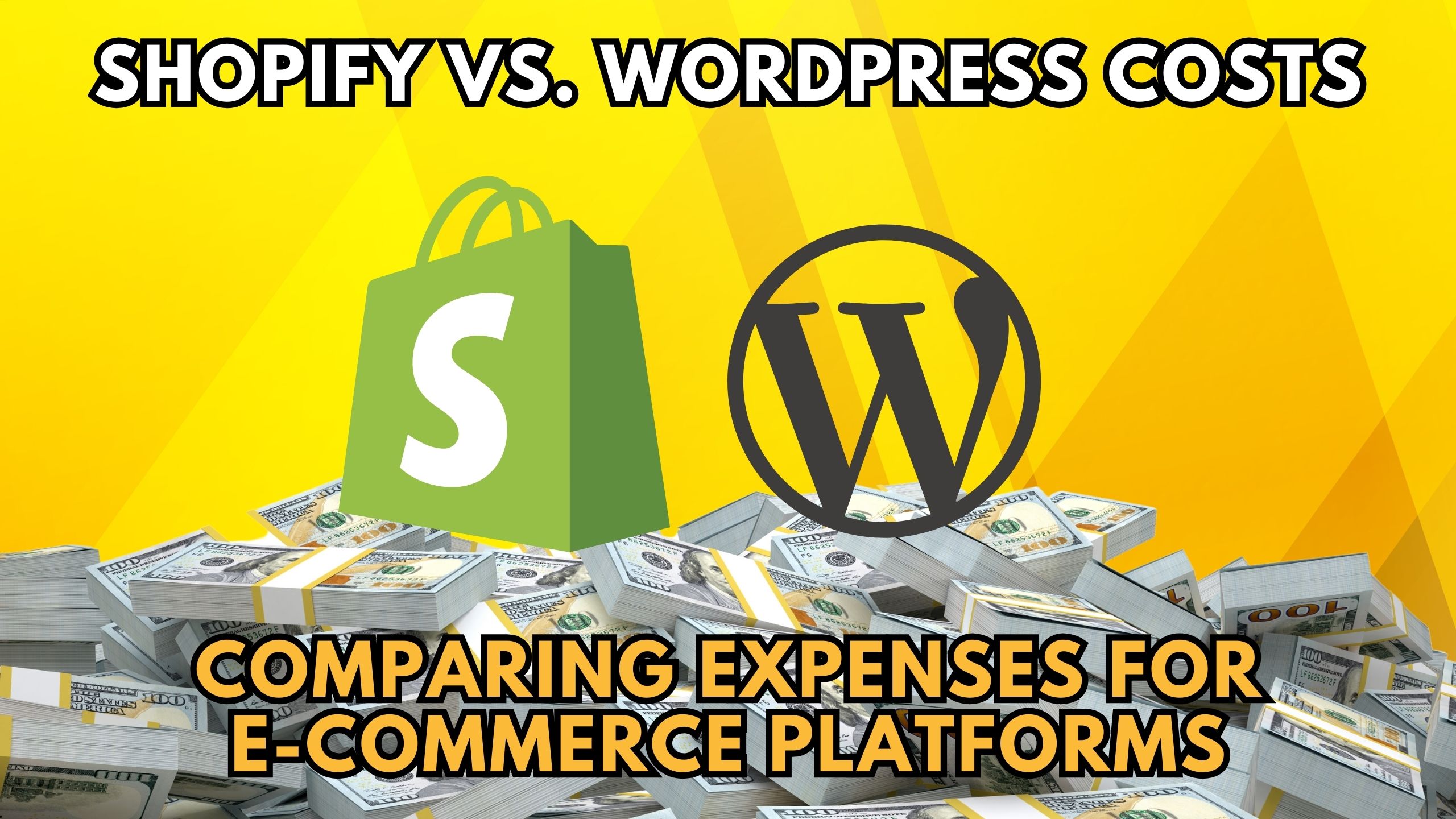Shopify vs. WordPress Costs: Comparing Expenses for E-commerce Platforms


Shopify vs. WordPress Costs: Comparing Expenses for E-commerce Platforms
Embarking on the journey of establishing an online store involves critical decisions, and one of the pivotal choices is selecting the right e-commerce platform. This blog meticulously explores the costs associated with two leading platforms—Shopify and WordPress. Understanding the expenses involved is crucial for businesses seeking to make informed decisions about their online presence.
Breaking Down the Costs of Shopify
1. Shopify Subscription Fees
Shopify operates on a subscription-based model, with varying plans catering to different business needs. The subscription fees encompass essential features, including hosting, security, and basic store functionalities. This predictable monthly cost structure simplifies budgeting for businesses of all sizes, making it a suitable choice for those looking for convenience.
2. Transaction Fees and Payment Gateways on Shopify
Shopify introduces transaction fees when using external payment gateways, in addition to the charges levied by the payment processors themselves. While the platform offers its payment solution (Shopify Payments) with reduced transaction fees, businesses need to weigh the benefits against potential limitations. Shopify’s transparent approach to transaction costs ensures businesses are aware of the financial implications from the outset.
3. App Expenses for Enhanced Functionality
Businesses often turn to the Shopify App Store to enhance their store’s functionality. While some apps are free, others come with associated costs. These apps can range from marketing tools to inventory management solutions. Considering the specific needs of the business is crucial to avoid unnecessary expenses while leveraging the benefits of additional features.
WordPress Costs: Navigating the Expenses
1. WordPress Hosting and Domain Costs
With WordPress, businesses have the flexibility to choose from a variety of hosting providers, each with its pricing structure. Additionally, purchasing a domain is a standard initial expense. While this provides more control over costs, it requires businesses to proactively manage hosting resources, ensuring the website’s performance and security.
2. WooCommerce as a Free E-commerce Plugin
For businesses utilizing WordPress, WooCommerce stands out as a popular e-commerce plugin. Noteworthy is the fact that WooCommerce itself is free. However, businesses may incur expenses when opting for premium extensions or themes to enhance their online store’s aesthetics and functionality.
Conclusion: Deciding the Best Fit for Your Business
In conclusion, the choice between Shopify and WordPress involves assessing the unique needs and preferences of your business. While Shopify offers a convenient, all-in-one solution with transparent pricing, WordPress provides unparalleled flexibility but demands a more hands-on approach. The decision hinges on your business model, growth aspirations, and comfort with managing different aspects of your online store.
Unlock the Power of E-commerce with Subscribed.fyi
Empower your e-commerce journey with Subscribed.fyi, the ultimate platform for understanding, comparing, and managing your SaaS stack. Sign up today to unlock exclusive deals, streamline subscription management, and gain insights that propel your online business to new heights.
Relevant Links:








